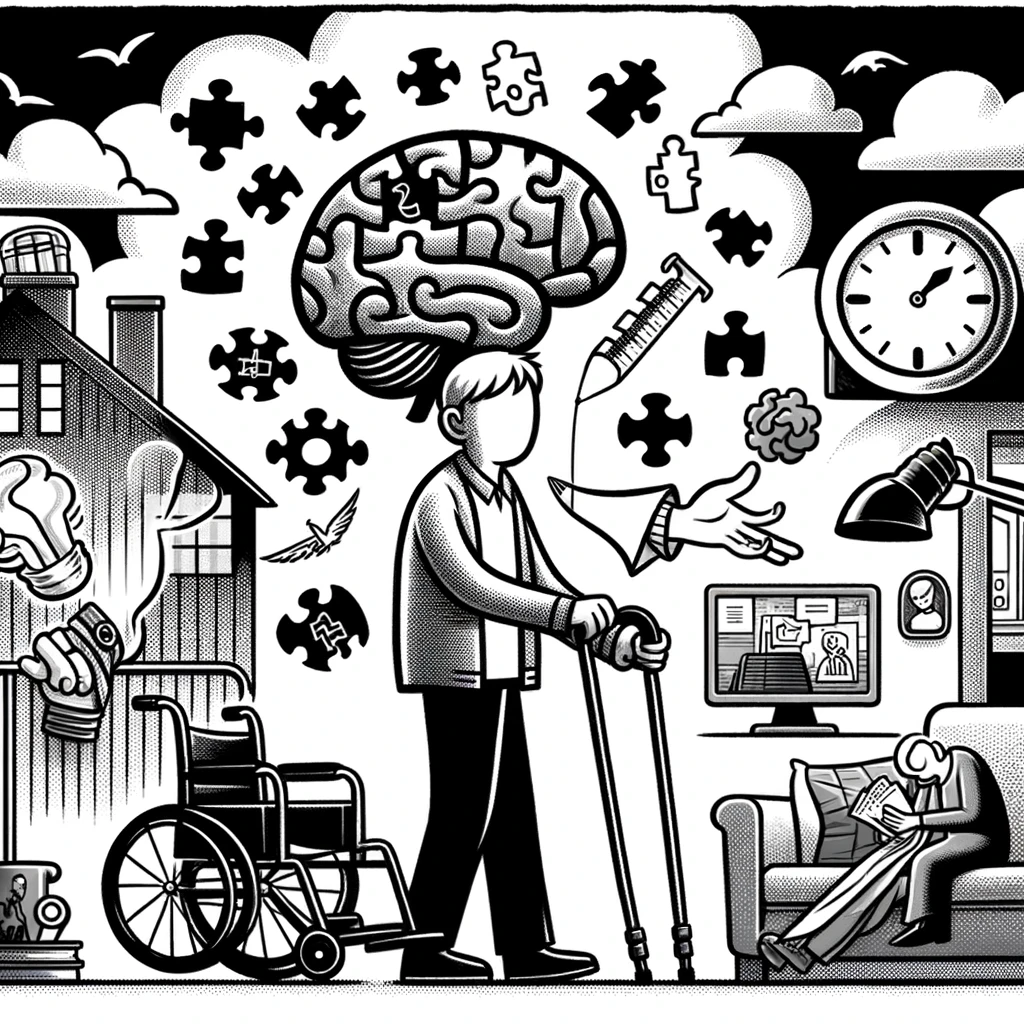Living with a Traumatic Brain Injury (TBI) presents a multitude of daily challenges that can significantly impact an individual’s life. This essay delves into the various aspects of these challenges, ranging from cognitive and physical difficulties to emotional and social hurdles, painting a picture of the everyday realities for those living with a TBI.
Introduction
Traumatic Brain Injury is a complex medical condition resulting from a blow or jolt to the head that disrupts the normal function of the brain. The severity of a TBI can range from mild (commonly referred to as a concussion) to severe, with long-lasting effects. The challenges faced by individuals with TBI vary greatly depending on the severity of the injury, the area of the brain affected, and the individual’s pre-injury abilities and lifestyle.
Cognitive Challenges
One of the most significant daily hurdles for individuals with TBI is cognitive impairment. This can manifest in several ways:
- Memory Problems: Short-term memory loss is common, making it difficult to remember new information, follow conversations, or recall daily tasks.
- Attention and Concentration: Individuals may have trouble focusing on tasks, leading to difficulties completing work or household activities.
- Executive Functioning: Planning, organizing, and decision-making skills can be affected, making everyday activities like grocery shopping or managing finances challenging.
- Information Processing: Slowed cognitive processing can impact the ability to quickly understand or respond to information.
Physical Challenges of Living with a TBI
Physical impairments following a TBI can also pose daily challenges:
- Motor Skills: Coordination and balance issues can make performing tasks like cooking or driving difficult.
- Fatigue: Physical and mental fatigue are common, reducing the individual’s ability to engage in daily activities.
- Speech and Language Issues: Some individuals may experience difficulty speaking or understanding language, impacting communication.
- Sensory Impairments: Altered sensory perception, such as sensitivity to light and sound, can make everyday environments overwhelming.
Emotional and Psychological Challenges
TBI often comes with significant emotional and psychological impacts:
- Mood Swings and Irritability: Emotional regulation can be difficult, leading to sudden mood changes or increased irritability.
- Depression and Anxiety: The stress of coping with the changes brought about by TBI can lead to depression and anxiety.
- Changes in Personality: Family and friends may notice changes in the individual’s personality, which can strain relationships.
Social and Vocational Implications of living with a TBI
TBI often disrupts social and vocational life:
- Social Interactions: Cognitive, emotional, and speech impairments can affect social skills, making interactions awkward or challenging.
- Employment Challenges: Returning to work may be difficult due to cognitive and physical impairments. There may be a need for job retraining or a career change.
- Dependency: Depending on the severity, some individuals may require assistance for daily tasks, impacting their sense of independence.
Coping and Adaptation
Living with a TBI requires continuous adaptation and coping strategies:
- Rehabilitation and Therapy: Regular therapy sessions (physical, occupational, speech, and cognitive) are essential for recovery and adaptation.
- Support Systems: Strong support from family, friends, and support groups is crucial for emotional and practical assistance.
- Adaptive Technologies: Using assistive devices and technologies can help manage daily tasks and improve independence.
The Challenges of Living with a TBI
Traumatic Brain Injury significantly alters the daily life of an individual. The multifaceted challenges affect cognitive, physical, emotional, and social aspects of life. Each person’s experience with TBI is unique, and thus, their coping strategies and support needs vary. Understanding and acknowledging these challenges is the first step in providing effective support and creating an environment that facilitates recovery and adaptation for TBI survivors.


